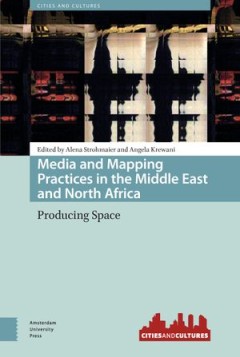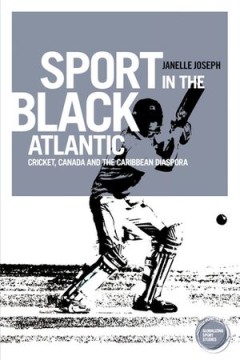Filter by

Gasotransmitters in Plants
Common properties are shared by NO, H2S and CO: they are beneficial at low concentrations but hazardous in higher amounts; they are small molecules of gas; they can freely cross cell membranes; their effects do not rely on receptors; they are generated enzymatically and their production is regulated; their functions can be mimicked by exogenous application; and their cellular effects may or may…
- Edition
- -
- ISBN/ISSN
- 978-3-319-40711-1
- Collation
- -
- Series Title
- -
- Call Number
- 660.043

Multidisciplinary Management of Chronic Pain:A Practical Guide for Clinicians
This book is a 'must have' resource in every physician/clinician practice setting."--Martin Grabois, M.D., Professor of PM&R, Baylor College of Medicine, Houston,TX. Dr. Vasudevan draws upon an accumulated reservoir of clinical expertise to provide readers with an up-to-date and highly readable guide to multidisciplinary pain management. . . . If only this book was available years ago"--Fran…
- Edition
- 1
- ISBN/ISSN
- 978-3-319-20321-8
- Collation
- XXV, 228
- Series Title
- -
- Call Number
- -

Molecular and Multimodality Imaging in Cardiovascular Disease
This book provides the most up-to-date coverage of the combined use of imaging modalities in order to acquire important functional and morphological information on cardiovascular disease and enhance disease detection. The recent developments in PET/MRI, cardiac CT, PET/CT and SPECT/CT and their impact on clinical practice are explained and special attention is also devoted to imaging parameters…
- Edition
- 1
- ISBN/ISSN
- 978-3-319-19610-7
- Collation
- XI, 247
- Series Title
- -
- Call Number
- -

Gas-Phase IR Spectroscopy and Structure of Biological Molecules
his book describes the three gasotransmitters nitric oxide (NO), hydrogen sulphide (H2S) and carbon monoxide (CO) and their function as intracellular signalling molecules in plants. Common properties are shared by NO, H2S and CO: they are beneficial at low concentrations but hazardous in higher amounts; they are small molecules of gas; they can freely cross cell membranes; their effects do n…
- Edition
- -
- ISBN/ISSN
- 978-3-319-19203-1
- Collation
- -
- Series Title
- -
- Call Number
- 660.043

The Shock Trauma Manual of Operative Techniques
This manual provides a practical approach to operative trauma management. Written entirely by physicians who currently practice in shock trauma, the manual features a hands-on approach and practice to dealing with shock trauma that is regularly utilized by the faculty at the R Adams Cowley Shock Trauma Center. The volume includes numerous photographs that illustrate operative techniques in grea…
- Edition
- -
- ISBN/ISSN
- 978-1-4939-2371-7
- Collation
- -
- Series Title
- -
- Call Number
- -

Transnational Social Work and Social Welfare: Challenges for the Social Work …
The underlying frame of social work is the nation state, and it is from within the state that welfare strategies and social policies are devised and implemented. However, post-colonialism, globalisation, migration and the associated implications for human rights, social justice and social welfare policies contest the idea of a clearly defined space for social work and present new challenges for…
- Edition
- -
- ISBN/ISSN
- 9781317431183
- Collation
- -
- Series Title
- -
- Call Number
- 362.1 TRA t

Media and Mapping Practices in the Middle East and North Africa Producing Space
A few months into the popular uprisings in the Middle East and North Africa (MENA) region in 2009/10, the promises of social media, including its ability to influence a participatory governance model, grassroots civic engagement, new social dynamics, inclusive societies and new opportunities for businesses and entrepreneurs, became more evident than ever. Simultaneously, cartography received ne…
- Edition
- -
- ISBN/ISSN
- -
- Collation
- -
- Series Title
- -
- Call Number
- -

Healthcare as a Human Rights Issue : Normative Profile, Conflicts and Impleme…
This book deals with various facets of the human right to health: its normative profile as a universal right, current political and legal conflicts and contextualized implementation in different healthcare systems. The authors come from different countries and disciplines—law, political science, ethics, medicine etc.—and bring together a broad variety of academic and practical perspectives.…
- Edition
- -
- ISBN/ISSN
- 978-3-8394-4054-4
- Collation
- -
- Series Title
- -
- Call Number
- 362.1 HEA

Sport in the Black Atlantic Cricket, Canada and the Caribbean diaspora
This book outlines the ways in which sport helps to create transnational social fields that interconnect migrants dispersed across a region known as the Black Atlantic: England, North America and the Caribbean. Many Caribbean men’s stories about their experiences migrating to Canada, settling in Toronto’s urban and suburban neighbourhoods, finding jobs, returning home for visits, and travel…
- Edition
- -
- ISBN/ISSN
- 9781526104939
- Collation
- -
- Series Title
- -
- Call Number
- -

Feeling Gender: a Generational and Psychosocial Approach
Gender Studies; Sociology of Family, Youth and Aging; Family
- Edition
- -
- ISBN/ISSN
- 9781349950812
- Collation
- -
- Series Title
- -
- Call Number
- 360 NIE f
 Computer Science, Information & General Works
Computer Science, Information & General Works  Philosophy & Psychology
Philosophy & Psychology  Religion
Religion  Social Sciences
Social Sciences  Language
Language  Pure Science
Pure Science  Applied Sciences
Applied Sciences  Art & Recreation
Art & Recreation  Literature
Literature  History & Geography
History & Geography